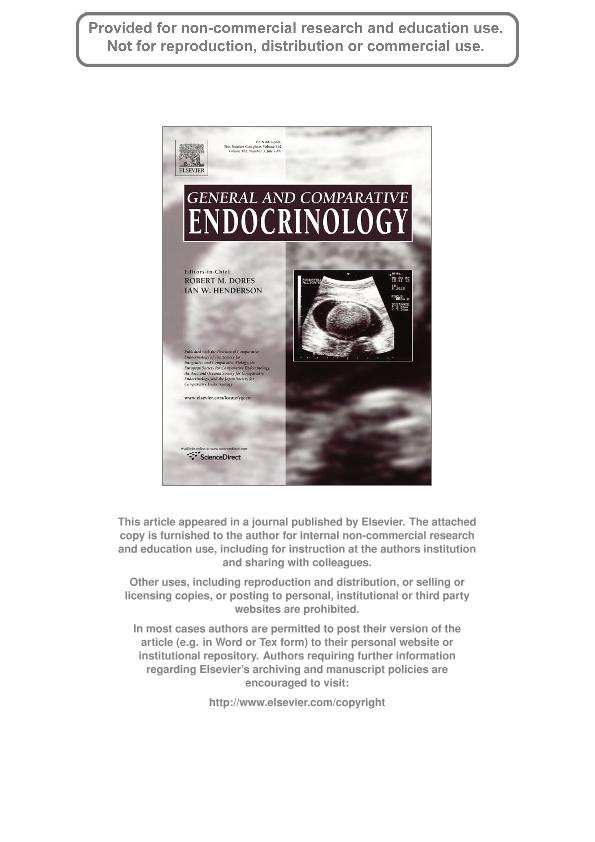Artículo
Prenatal exposure to pesticides disrupts testicular histoarchitecture and alters testosterone levels in male Caiman latirostris
Rey, Florencia ; Gonzalez, Marianela
; Gonzalez, Marianela ; Zayas, Marcelo Alejandro
; Zayas, Marcelo Alejandro ; Stoker, Cora
; Stoker, Cora ; Durando, Milena de Lourdes
; Durando, Milena de Lourdes ; Luque, Enrique Hugo
; Luque, Enrique Hugo ; Muñoz de Toro, Monica Milagros
; Muñoz de Toro, Monica Milagros
 ; Gonzalez, Marianela
; Gonzalez, Marianela ; Zayas, Marcelo Alejandro
; Zayas, Marcelo Alejandro ; Stoker, Cora
; Stoker, Cora ; Durando, Milena de Lourdes
; Durando, Milena de Lourdes ; Luque, Enrique Hugo
; Luque, Enrique Hugo ; Muñoz de Toro, Monica Milagros
; Muñoz de Toro, Monica Milagros
Fecha de publicación:
07/2009
Editorial:
Elsevier
Revista:
General and Comparative Endocrinology
ISSN:
0016-6480
Idioma:
Inglés
Tipo de recurso:
Artículo publicado
Resumen
The increased use of agrochemical pesticides, such as atrazine (ATZ) and endosulfan (END), may have a significant impact on ecosystem health and biodiversity. The aim of this study was to investigate the consequences of in ovum exposure to ATZ and END on Caiman latirostris gonadal histo-functional features. Caiman eggs were collected from environmentally pristine areas and incubated in controlled conditions at male producing temperature (33C). At stage 20 of embryonic development, the sensitive stage for gonadal sex determination, eggs were exposed to one dose of either END or ATZ. Gonadal histo-morphology was examined in caiman hatchlings and serum levels of testosterone were measured. Regardless of treatment condition, all eggs incubated at 33 C resulted in male hatchlings. Tortuous seminiferous tubules with increased perimeter, disrupted distribution of peritubular myoid cells (desmin positive), and emptied tubular lumens characterized the testes of pesticide-exposed caiman. An imbalance between proliferative activity and cell death was observed in the testes of caiman exposed to the higher doses of END, mainly due to a high frequency of apoptosis in intratubular cells. This altered cell turnover was associated with decreased testosterone levels. Prenatal exposure to only one dose of END and ATZ disrupted neonatal male gonadal histo-functional features. Alterations described here could have detrimental effects on the sexual maturation of the caiman and, ultimately, on the success of male caiman reproduction.
Palabras clave:
Caiman Latirostris
,
Endosulfan
,
Atrazine
,
Endocrine Disruptors
,
Testes
Archivos asociados
Licencia
Identificadores
Colecciones
Articulos(INTEC)
Articulos de INST.DE DES.TECNOL.PARA LA IND.QUIMICA (I)
Articulos de INST.DE DES.TECNOL.PARA LA IND.QUIMICA (I)
Citación
Rey, Florencia; Gonzalez, Marianela; Zayas, Marcelo Alejandro; Stoker, Cora; Durando, Milena de Lourdes; et al.; Prenatal exposure to pesticides disrupts testicular histoarchitecture and alters testosterone levels in male Caiman latirostris; Elsevier; General and Comparative Endocrinology; 162; 3; 7-2009; 286-292
Compartir
Altmétricas



